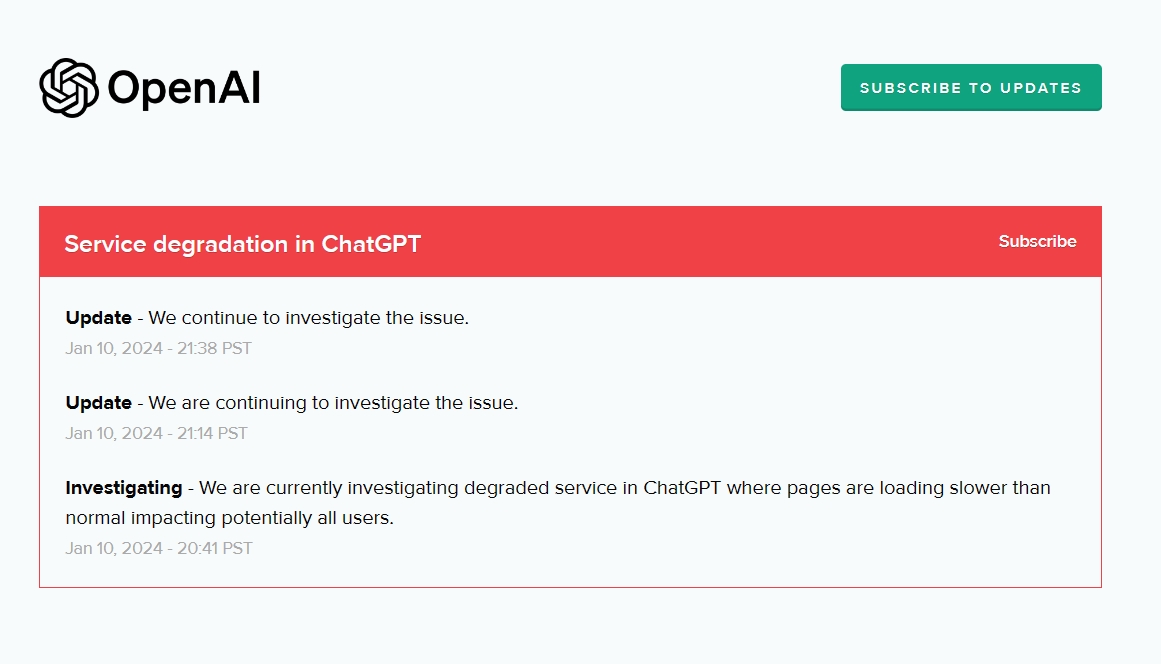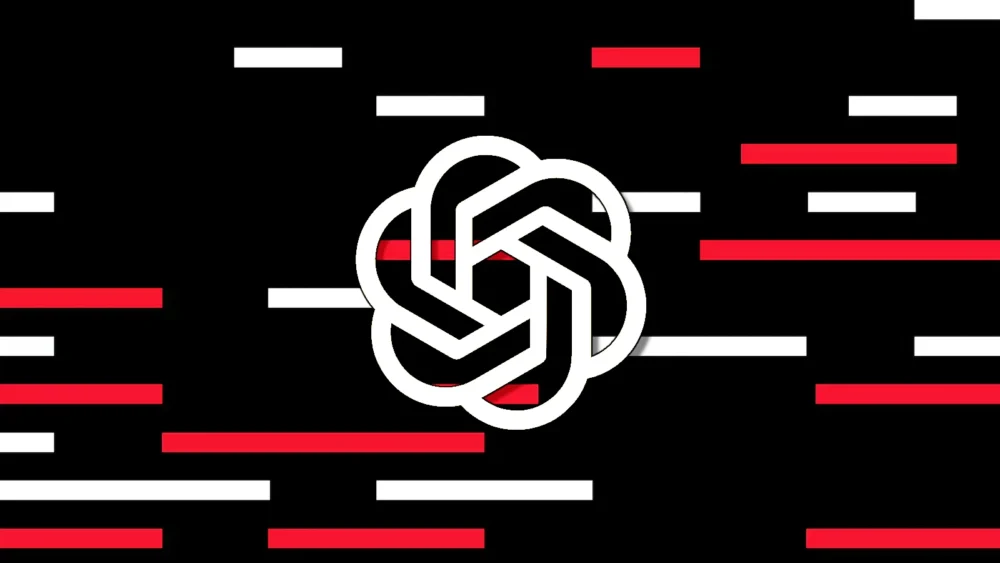OpenAI’s widely used AI chatbot ChatGPT is facing a worldwide outage, making the service unavailable on the web as well as on smartphones. The outage has been confirmed by OpenAI’s status page which tracks disruptions in service.
The OpenAI status page shows that there has been a service degradation in ChatGPT and that they are currently investigating the issue. Here is what it says: “We are currently investigating degraded service in ChatGPT where pages are loading slower than normal impacting potentially all users.”

Although OpenAI says that ChatGPT pages are loading slower than usual, it is not the same case for everyone. Many have reported on social media that the chatbot does, in fact, load the page normally and shows the conversational history as well, but the AI is not responding to any queries. The same applies to the smartphone app.
On the other hand, some are unable to load their chat history and mostly see a blank page while trying to access the chatbot.
The global website outage tracker DownDetector is also showing thousands of reports from all over the world, most of which report problems with the ChatGPT app. The reports started coming in more than a few hours ago but then receded after a while. However, the reports saw a major surge over the past hour, as shown in the graph below.

OpenAI’s status page also shows that OpenAI’s API services remain functional while its Labs and Playground platform is also available at the time of writing.
The news comes shortly after OpenAI announced its long promised GPT Store which is essentially a marketplace for custom chatbots built by ChatGPT users. Builders will also be able to monetize their creations and the best GPTs will be highlighted by the GPT Store.
The company also announced a ChatGPT Team subscription plan for $25 per month. This enables higher message limits for GPT 4 as well as DALL-E 3, Browsing Advanced Data Analysis, and more. ChatGPT Team subscribers can also create and share GPTs with their workspace, manage the admin console for their workspace, and opt out of training data collection.
Image credit: Bleeping Computer






